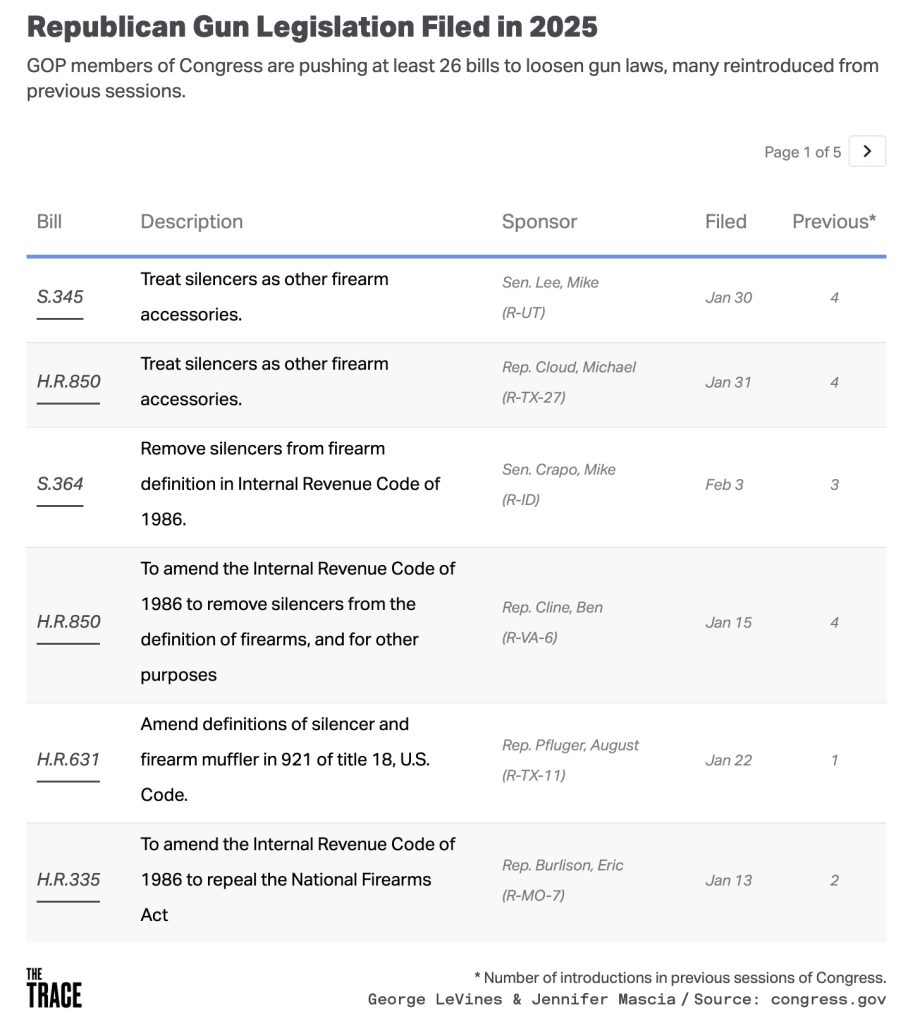
So far in 2025, House and Senate Republicans have introduced at least 26 bills aimed at loosening federal gun laws, according to an analysis by The Trace. Three bills in the House seek to reform the ATF, while two bills call for its elimination — legislation that’s been introduced four times before. Three bills in the House and two bills in the Senate seek to remove silencers from the National Firearms Act. One House bill seeks to repeal the National Firearms Act altogether.
The gun rights movement’s signature agenda item, national concealed carry reciprocity, has been introduced in both the House and Senate — for the 16th consecutive time. The policy, which the National Rifle Association has likened to a driver’s license for guns, is opposed by states with strong gun laws, which don’t want guns carried by residents of states that employ lower permitting standards or don’t require training.
National concealed carry reciprocity “would be the absolute prize” for Republicans, “and they’re going to do everything they can to get that,” said Josh Horwitz, co-director of Johns Hopkins Center for Gun Violence Solutions, who spent decades lobbying for gun reform on the Hill.
Horwitz and other experts tell The Trace that Republicans are better positioned than ever to get their wish list codified into law. But their razor-thin majority in the House — currently 218 to 215 — and the filibuster in the Senate still stand in their way.
— Jennifer Mascia in Republican Trifecta Puts Fringe Gun Bills Within Reach


If 50-state reciprocity ever happens, it’s likely to be a nightmare if you ever exercised your 2A rights in their little fascist fiefdoms. And a real horror-show if you ever draw and fire. You’ll likely wish you never did…
Agree.
Yes I would like to use my Texas concealed handgun license in all the USA. I am widow and 75 years.
To me it just makes absolute sense. For the jurisdictions that are concerned about people outside their state coming from states with gun laws that are more loose. I.e. lower permitting standards and/or don’t require training? Why not just put the training and standards in the law to cover the entire country. In my state of Oregon the training is a pretty small hurdle. If the requirements are the same across the country, there should be no problem.